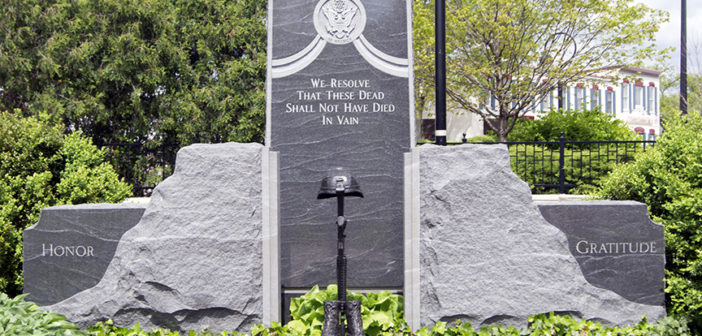The current, ongoing conflict in the Middle East is in many ways unlike anything the United States military has seen in the past. Unlike previous wars where you knew who you were fighting, this conflict screams uncertainty; uncertainty from who the United States military is actually fighting to how many.
This conflict isn’t like World War I or II in terms of combatant identification. The enemy this time typically doesn’t have a uniform that makes them easily identifiable. A soldier must be observant to everything around him or her. From pedestrians to shop owners to everyday civilians, one may not know who their real enemy is.
Suicide bombers hide their identity well enough to avoid detection and, in doing so, are responsible for some of today’s most chilling deaths. One of the reasons for all of this uncertainty stems from terrorism. Islamic extremists, while small in number, pose a threat unlike anything we’ve seen in the past, according to “The Evolution of Islamic Terrorism: An Overview” on PBS.org. Utilizing guerrilla warfare, today’s terrorists are able to attack and retreat effectively.
“I don’t necessarily think this is a war that’s winnable. This conflict is different. You can take away their territory, but you can’t take away their ideology. They see it as another Christian and capitalist crusade,” said Gerald Gems, who served in the Marine Corps during Vietnam.
“It’s a different culture with different religious beliefs. They’re not going to accept democracy overnight. They may never accept it.”
Terrorist groups such as ISIS, Al Qaeda and the Taliban, are counter-culture groups who reject Western ideologies. From suicide bombs to surprise attacks, it is hard to know who to fight and when to fight them.
According to Pat Gray, who served for the U.S. Navy during Vietnam: “The military is fighting a counter-culture group. They attack and retreat. It’s not territorial. It’s a philosophical battle. The U.S. is trying to introduce the concept of democracy to them. The democratic concept is just so foreign to them.
“It’s not about land. ISIS wants to establish a religious state. In this type of conflict, there is no finality. It’s like whack-a-mole; you can kill them, but they’ll just keep popping up,” said Gray.
ISIS is one of the most brutal terrorist groups we’ve seen in recent history. The acronym stands for Islamic State of Iraq and Syria. ISIS was derived from Al Qaeda in Iraq (AQI) in April of 2013; however, according to BBC News, Al Qaeda claims they do not support ISIS and their endeavors. Based on their name, it is quite easy to tell that they are mainly operating in Iraq and Syria. They strike fear and anger into their enemies by showing videos of public execution; these executions often show graphic images of people being beheaded.
According to ABC News, in an attempt to aid the fight against ISIS, President Barack Obama recently sent an additional 250 U.S. troops to Syria. The purpose of sending troops to Syria, aside from helping other nations in fighting ISIS, is to build off of the momentum from previous successful fights against Isis.
According to Fred Campbell, who served for the U.S. Navy during Vietnam: “I believe sending troops over to Syria was necessary. ISIS is a terrorist group that will stop at nothing. They’re a problem and we’re going to have to deal with it. I imagine it’s not an easy conflict to fight in. You’re fighting more than just enemies; you’re fighting their state of mind.”
This violence has an individual impact on the soldiers involved as well.
As of early May, a U.S. Navy SEAL by the name of Charles Keating IV was killed during an attack on Tuesday. A team of less than a dozen advisers was attacked by more than 100 ISIS fighters and a rescue team was sent in to save them. Keating, a member of the rescue team, did not survive the attack.
According to CNN, “Keating’s death is the third American combat loss since the U.S. redeployed forces to Iraq in the summer of 2014 to advise local forces and conduct Special Operations missions against ISIS. The 31-year-old Special Warfare Operator 1st Class was on his third tour in Iraq.”
As the fight against ISIS and terrorism in the Middle East continues, many wonder when the end to this conflict will come. The Middle Eastern conflict is a difficult one to assess because it is not land over which everyone is fighting; instead, the ongoing conflict is due to deeply ingrained philosophical and religious differences between the West and jihadists.

